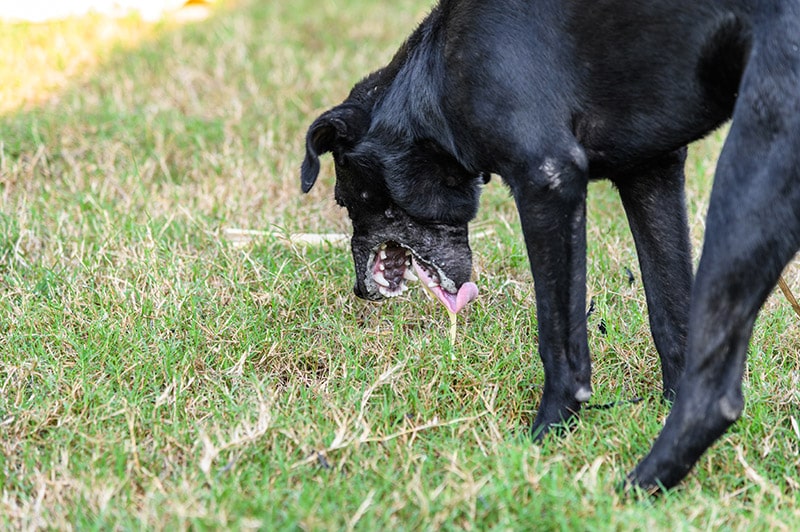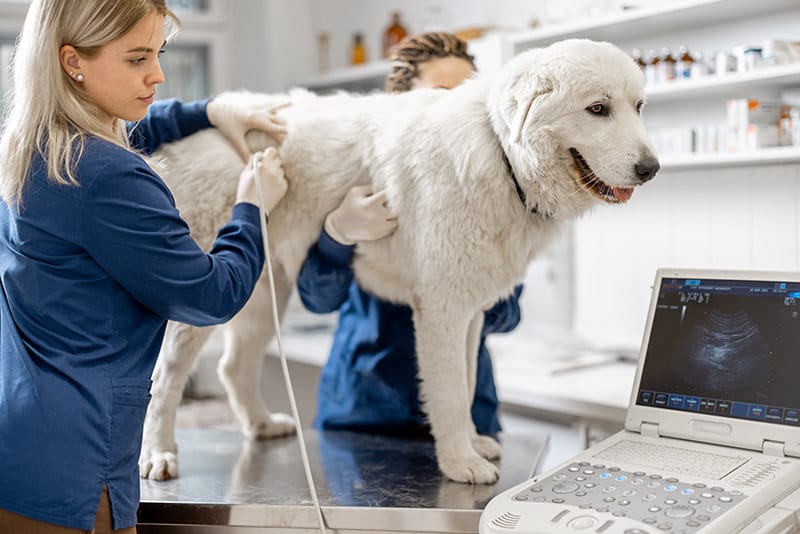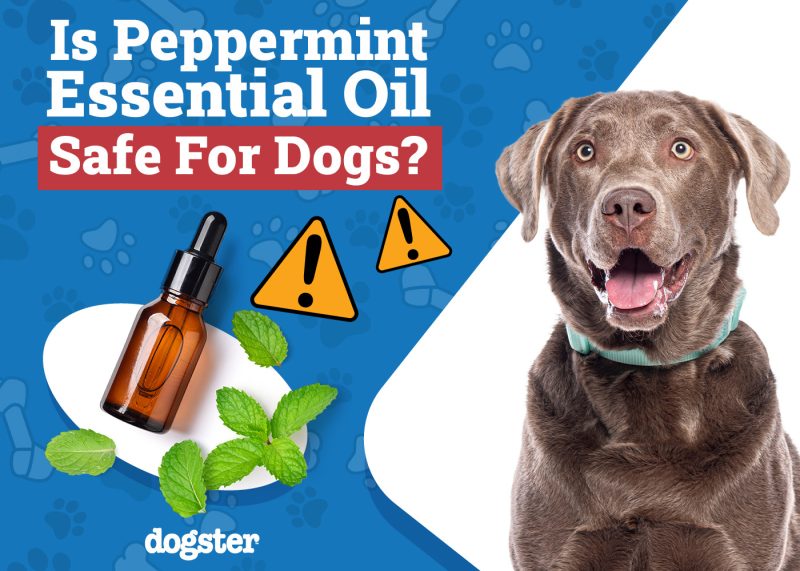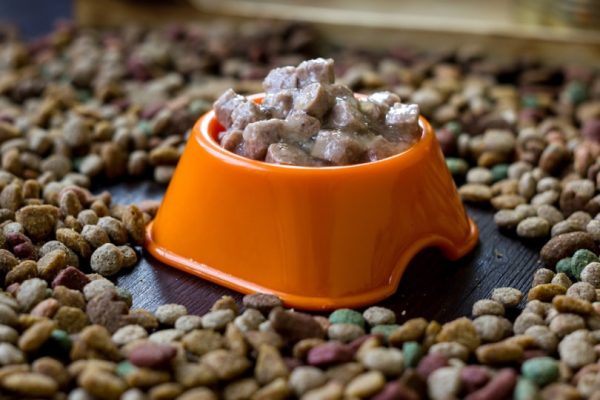Hemorrhagic gastroenteritis in dogs is a relatively common condition that results in vomiting and diarrhea containing blood. It is a medical emergency. You must seek veterinary attention if you think your dog may be suffering from this disease. The underlying cause is thought to be a bacteria that causes damage to the lining of the guts.
The clinical signs in dogs usually last 2 to 4 days, and the prognosis is normally good if they receive prompt treatment from their vet. Owners must understand hemorrhagic gastroenteritis in dogs is a severe condition. Your dog is in danger of developing sepsis, and hemorrhagic gastroenteritis can, unfortunately, be fatal.

What Is Hemorrhagic Gastroenteritis in Dogs?
Hemorrhagic gastroenteritis, also known as Acute hemorrhagic diarrhea syndrome, is an acute (sudden onset) disease that affects dogs. It is a specific form of enteritis and one that can have devastating effects on your dog.
It can affect any breed and age, and it often affects dogs that are perfectly fit and well and have no underlying health issues. Affected pets start vomiting and have diarrhea with blood present. Dogs may also be lethargic and have a temperature.
Sometimes, they have a reduced appetite or refrain from eating altogether. They may be in pain and react if touched on their abdomen, so approach and handle your dog cautiously. They may lash out or bite if they are sore and uncomfortable.
Hemorrhagic gastroenteritis can affect any dog but is more commonly seen in small and toy dog breeds. Commonly affected breeds include:
The exact cause of hemorrhagic gastroenteritis is unknown. It is thought that it could be linked to bacteria that target the cells that line the gut, but more research on the subject is required. The vomiting and diarrhea occur after large amounts of fluid seep into the guts. There can be alarming amounts of blood in the diarrhea.

What Are the Signs of Hemorrhagic Gastroenteritis in Dogs?
The most common signs owners notice if their dog is affected by gastroenteritis are vomiting and diarrhea with blood present. Some other, more subtle clinical signs can occur before the vomiting and diarrhea or can happen alongside it.
These include:
- Reduction in appetite or complete loss of appetite
- Lethargy
- Painful abdomen
- Fever
- Weakness
- Dehydration
- Collapse
The main signs to look out for are acute onset vomiting and diarrhea with a large amount of blood in the diarrhea. When assessing whether your dog is dehydrated, it can be difficult for owners to know how or what to look out for. If you suspect your dog has become dehydrated, they can become sick in a short space of time. To assess if your dog is dehydrated at home, try to lift the skin at the scruff of their neck.
If the skin “tents” upwards and does not return to its original position, it is an indication of dehydration. If your dog tolerates it, you can press gently on their gums. The gum should turn white with the pressure from your finger, then turn back to pink within 2 seconds.
If the gum takes longer than 2 seconds to return to a normal color, it is a sign your dog may be dehydrated. Bear in mind some dogs have dark pigmented gums, so it may not work as well in those animals. If your dog is dehydrated, you may also notice their nose is dry, they may start panting, and their gums may feel dry and sticky.
What Are the Causes of Hemorrhagic Gastroenteritis in Dogs?
The exact cause of hemorrhagic gastroenteritis is currently unknown, but several factors may contribute to it. Some common theories point towards a bacterium, Clostridium perfringens. Other things thought to be involved or contribute include dietary indiscretion, stress, anxiety, hyperactivity, parasite infestations, toxins, and allergies.
Other less common causes that have been mentioned include:
- Abdominal trauma
- Foreign bodies
- Gastrointestinal ulcers
- Infectious diseases
- Blood clotting disorders

Diagnosis of a Dog With Hemorrhagic Gastroenteritis
A diagnosis of hemorrhagic gastroenteritis can be tricky. Your vet will take a full clinical history and perform a physical exam on your dog. They will need to take blood tests and a urine sample to analyze blood cell counts and how well the organs function.
Other tests your vet may want to carry out depending on the findings from the clinical exam may include:
- X-ray
- Ultrasound scan
- Endoscopy examination
- Fecal examination
- Blood coagulation tests (assessing how well your dog’s blood clots)
One of the significant changes on the blood test that your vet will pay particular interest to is the packed cell volume (PCV). This is sometimes called a hematocrit (HCT). It measures the proportion of red blood cells in your dog’s blood. The measurement depends on the size and number of red blood cells.
In dogs suffering from hemorrhagic gastroenteritis, the packed cell volume is usually greater than 60% (A normal range for a dog is 37% – 55%). An elevated PCV is typically seen with something called hemoconcentration. It is one of the most common findings in dogs with hemorrhagic gastroenteritis.
It occurs when there is a high percentage volume of red blood cells in relation to the actual volume of fluid in the blood. A huge loss of electrolytes and water causes it. If the packed cell volume is high, and this is seen in conjunction with a low or average protein count, your vet will have a strong suspicion of hemorrhagic gastroenteritis.
Other things your vet will look at on the blood tests include the pH of the blood and the blood bicarbonate levels. Sometimes, depending on how your dog presents to your vet, the diagnosis may be a process of elimination. Your vet will rule out the obvious causes initially.
How Do I Care for a Dog With Hemorrhagic Gastroenteritis?
Most cases of hemorrhagic gastroenteritis will resolve in a few days if your dog receives the correct supportive treatment from your vet.
Supportive care includes intravenous fluid therapy, correction of electrolyte imbalances, pain relief, probiotics, and nutritional support if required. Other treatment options depend on the underlying cause. If parasites are present, the appropriate anti-parasite medication will be prescribed.
If the bacteria are isolated from samples, antibiotics will be used. Other medications, such as anti-vomiting drugs and gastrointestinal protectants, can also help your dog.
If blood protein levels drop very low, some dogs will require additional therapy, such as plasma or colloid liquid supplementation, to replace the lost blood protein.
Your vet will also recommend you feed small bland meals throughout the day. Your dog may need to be isolated from other dogs to prevent the spread of the disease. Some cases of hemorrhagic gastroenteritis can be severe and can result in death if left untreated. It is vital to consult your vet if you think your dog is showing signs.
If you need to speak with a vet but can't get to one, head over to PangoVet. It's our online service where you can talk to a vet online and get the advice you need for your pet — all at an affordable price!

Frequently Asked Questions (FAQ)

Can Hemorrhagic Gastroenteritis Be Prevented?
It is difficult to prevent hemorrhagic gastroenteritis since the underlying cause is not yet fully understood. It’s best to maintain strict hygiene practices, use anti-parasite medication prescribed by your vet, prevent your dog from scavenging, and avoid changing their food abruptly. Keep stressors to a minimum wherever possible.
What Is the Prognosis for Hemorrhagic Gastroenteritis?
If the issue is recognized early and a prompt diagnosis is made, the prognosis is relatively good. The survival rate is high as long as the appropriate treatment is received. If your dog is already immunosuppressed or has ongoing health issues, the prognosis will be poorer. Some dogs, unfortunately, develop hypovolemic shock or sepsis.
What Is the Most Common Cause of Hemorrhagic Gastroenteritis in Dogs?
The exact cause is currently unknown, but one of the most common causes is thought to be a result of infection by Clostridium perfringens bacteria. It is believed that there are other contributing factors, such as diet and environmental stressors.
Is Hemorrhagic Gastroenteritis in Dogs Contagious to Humans?
Hemorrhagic gastroenteritis in dogs is not usually passed on to humans. However, because the underlying cause is not fully understood, it is recommended to maintain strict hygiene practices to prevent the spread of potential pathogens from dogs to humans. This is especially important when handling food bowls and when picking up feces.

Conclusion
Hemorrhagic gastroenteritis is a serious disease that is a medical emergency. If you notice clinical signs of this disease, it is very important to contact your vet immediately. The disease causes a dramatic loss of fluid, vital electrolytes, and protein. Your dog can go downhill very quickly if they do not receive the correct treatment promptly. The prognosis is usually very good if the disease is recognized and managed quickly, provided your dog does not have any concurrent health issues. Most dogs go on to make a full recovery.
Featured Image Credit: RossHelen, Shutterstock


















